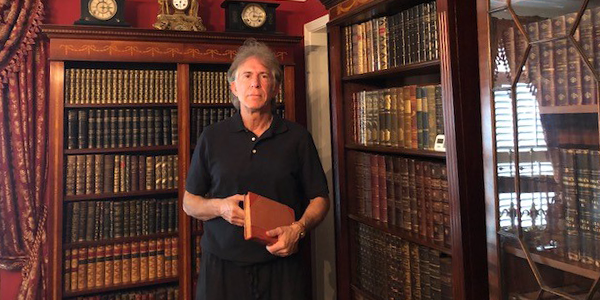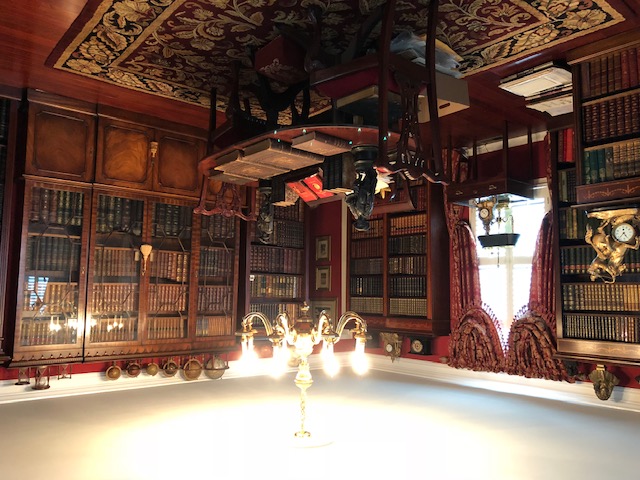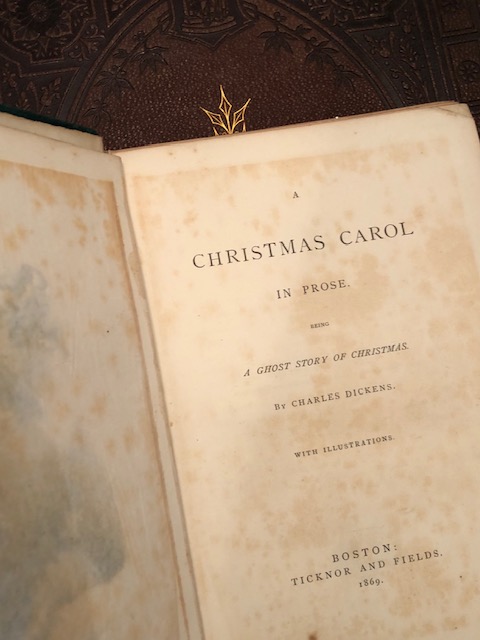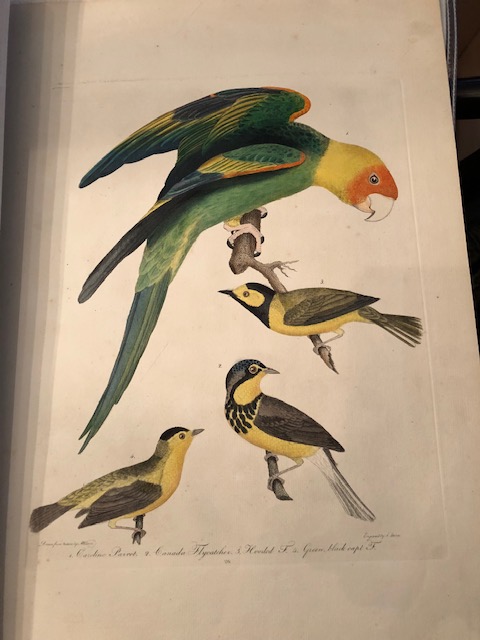
When Terry Kingery talks about his rare book collection, one of the first things he says is, "Well, we had to add a wing onto the house for it."

Kingery graduated from ECU in 1980 with a degree in marketing and has been collecting books for 40 years. A peek in his library is like being transported to Downton Abbey, with floor-to-ceiling shelves filled with heavy, leather-bound tomes bearing names of great authors such as Thackeray, Irving, Dickens and Twain. Most of Kingery's 4,000 rare books were written before 1900.
"It's been a lifetime of collecting. I've been to thousands of bookstores and book fairs and antique fairs, looking, buying and negotiating for books. I don't want them to be wasted," Kingery said.
For that reason, he made a will bequest donating his prized volumes to ECU, in addition to an endowment to maintain the collection permanently as the Terry H. Kingery Special Collection at Joyner Library.
"We are grateful to Mr. Kingery for his planned gift of rare books. His passion and dedication for his hobby has resulted in a wonderful collection that will enhance our special collections and will be used by future generations of students and researchers," said Jan Lewis, director of Joyner Library.
Joyner Library has about 18,500 printed books and maps in its Special Collections. They include the J. Edgar Hoover Collection on International Communism, the James H. and Virginia C. Schlobin Literature of the Fantastic Collection, the Stuart Wright Collection of modern American and English Literature, and the Gene and Susan Roberts Civil Rights Collection.

After graduating from ECU, Kingery began a career in hospitality and hotel management. His jobs took him to Hilton Head, South Carolina, and Marietta, Georgia, where he now lives. It was at an antique market in Georgia where he first bought a 100-year-old copy of Charles Dickens' "A Christmas Carol." The find ignited a passion and hobby for book collecting.
While Kingery also maintains a personal library, a collection is a more focused attempt to amass a specific type of book, usually of a certain quality. Some collectors, Kingery included, focus on aesthetic appeal when they are acquiring books.
"Most of mine are leather-bound English books from the mid-1800s. I love their beautiful bindings and the hand-colored prints," he said.
One of his favorite books is from 1819 and has 60 hand-colored prints made in England. Titled "The Three Tours of Doctor Syntax," written by William Combe and illustrated by Thomas Rowlandson, the book is a comic poem about a fictional rural schoolmaster and pastor who attempts to make his fortune by going traveling.
"Many folks have never held a handmade, leather-bound book from the 1800s," Kingery said. "Most of these are books that have not been reproduced. They're not downloadable. And they contain things people can learn from."
When thinking of who to leave his collection to, university students seemed like the best recipients.
"I thought it would be great for ECU to have it. They need someone to leave them a rare book collection," he said.

Of all the sections of Special Collections at Joyner Library, rare book collections are the newest, having only started in the 1990s, according to Assistant Director for Special Collections John Lawrence.
"We have just over 1,500 volumes dating from the 19th century in the rare book collection, and less than 300 that were printed from 1500 to 1799. Considering that Mr. Kingery's collection includes 4,000 volumes, almost all dating before 1900, it will greatly expand our range of historic printed materials," Lawrence said.
Contrary to popular belief, Kingery does not consider himself a bookworm. He appreciates his collection for its posterity, and the insight into the past that it can provide to future generations.
"I don't sit in the library all day and all night. But I do enjoy going in and reading late at night," he said. "I like to see what people were thinking back then."